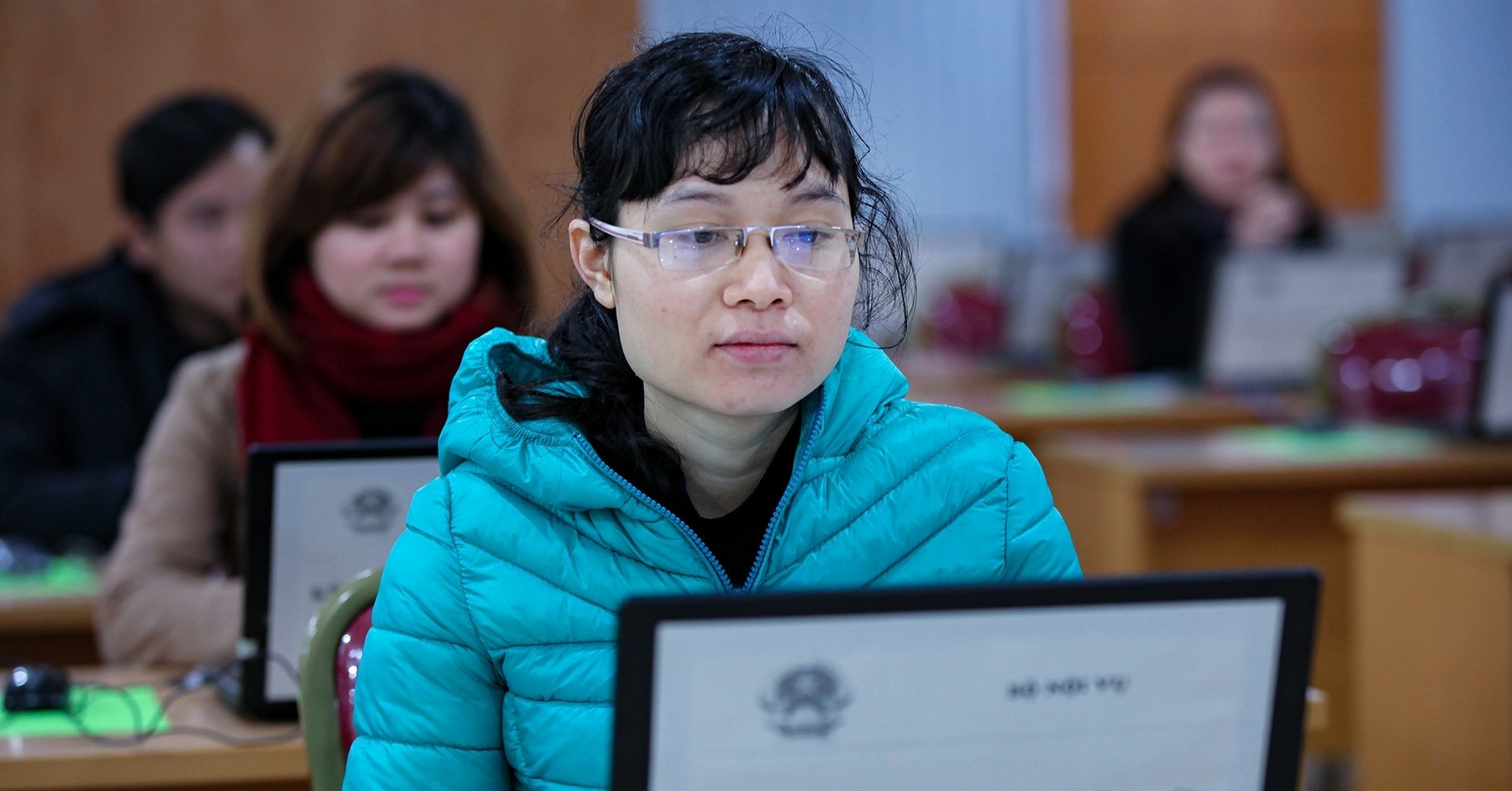The Ministry of Home Affairs proposes to prioritize the recruitment method. For agencies with low recruitment targets, the recruitment should be decentralized to the agencies themselves. For agencies with large recruitment needs, they should hire independent recruitment organizations.

After the reorganization of administrative units, the number of provinces and cities will be reduced from 63 to 34, the number of communes will be reduced from more than 10,000 to 5,000, and provincial and district officials and civil servants may be transferred to communes. Within 5 years after the reorganization, administrative units must be streamlined and reduced in size.
The Ministry of Home Affairs also proposed implementing a unified civil servant regime from the central to local levels, without distinguishing between commune-level and provincial-level civil servants.
The new policy raises the issue of how to recruit and select civil servants to meet new job requirements.
In contributing to the development of the Law on Cadres and Civil Servants (amended), the Ministry of Home Affairs referred to the experiences of several countries in recruiting civil servants and made a number of proposals.
Priority admission form
According to research by the Ministry of Home Affairs, in civil service recruitment exams, countries often do not organize general knowledge exams but focus on professional exams or interviews according to the requirements of the job position.
Not all job positions require foreign languages and civil servants must commit to using foreign languages at work. Failure to do so will affect the civil servant's performance evaluation.
Regarding general knowledge, during the internship, civil servants will be taught by instructors and learn about the political, administrative and legal systems themselves. This will save costs for the recruiting agency and the candidate's efforts.
Regarding the form of recruitment, the Ministry of Home Affairs proposes to prioritize the form of selection. For agencies with low recruitment targets, the recruitment should be decentralized to the agencies themselves. For agencies with large recruitment needs, they should hire independent recruitment organizations.
The Ministry of Home Affairs also proposed adding an internal recruitment method: Priority will be given to those with experience in the public sector or those working under contract, creating motivation for advancement in the civil service.
Some countries such as Australia, Thailand and Japan use a priority list - about 5 people with the highest scores for a job. If the person in first place cannot accept the job due to violations of the recruitment process, qualifications or health, etc., the agency decides to hire the person in second place.
Those with the highest scores can also be added to equivalent positions in the agency. This will maximize the recruitment results and save time, effort, and costs in organizing civil servant recruitment.
The Ministry of Home Affairs said that Vietnam should consider using the list of five candidates with the highest scores in order of priority to reserve vacant positions.
In addition, Japan, Thailand... stipulate that the probationary period is only 3 - 6 months to save time for training, appointment, and seniority for civil servants.
Currently, the probationary period in Vietnam is 12 months. If civil servants do not violate the law, most civil servants will be assessed and meet the requirements of the probationary period. Therefore, it is necessary to consider shortening the probationary period so that civil servants can be officially appointed soon and implement the process of using and managing civil servants.
Evaluating civil servants: Avoid collective voting
Except for China, which has many similarities with Vietnam, countries evaluate civil servants based on work performance. The evaluation results are the basis for rewards as well as measures to improve and enhance the work efficiency of civil servants. They do not focus on evaluating difficult-to-quantify criteria such as political ideology, ethics, and lifestyle. If civil servants violate ethical codes or communication behavior, they will be disciplined...
The method of evaluating civil servants in each country is also different from that in Vietnam. In many countries, the authority and the civil servant sit in a separate room, the civil servant presents the results of his work and self-assesses the level of completion of his work. The authority will evaluate and give comments and find out the reasons why the civil servant does not work effectively such as: health, family circumstances or lack of training, expertise to propose measures to support the civil servant to solve their problems.
In Vietnam today, evaluation work is often formal, respectful, evasive and not linked to salary and bonus treatment. Therefore, the Ministry of Home Affairs believes that it is necessary to consider amending the regulations on evaluation and classification of work results of cadres and civil servants in the direction of building an objective, transparent, and substantive evaluation process, ensuring the quantification of work performance results, and increasing the authority of civil servants in evaluation.
The Ministry of Home Affairs encourages one-on-one evaluation (in the evaluation session, only the user and the civil servant are evaluated), avoiding the situation where the entire agency participates in the evaluation, which will cause a state of deference, apprehension, formality and insubstantiality.
The results of the assessment and classification of the level of work completion of cadres and civil servants must be the sole basis for carrying out the work of appointing, increasing salaries and rewarding cadres and civil servants.
VN (according to Vietnamnet)